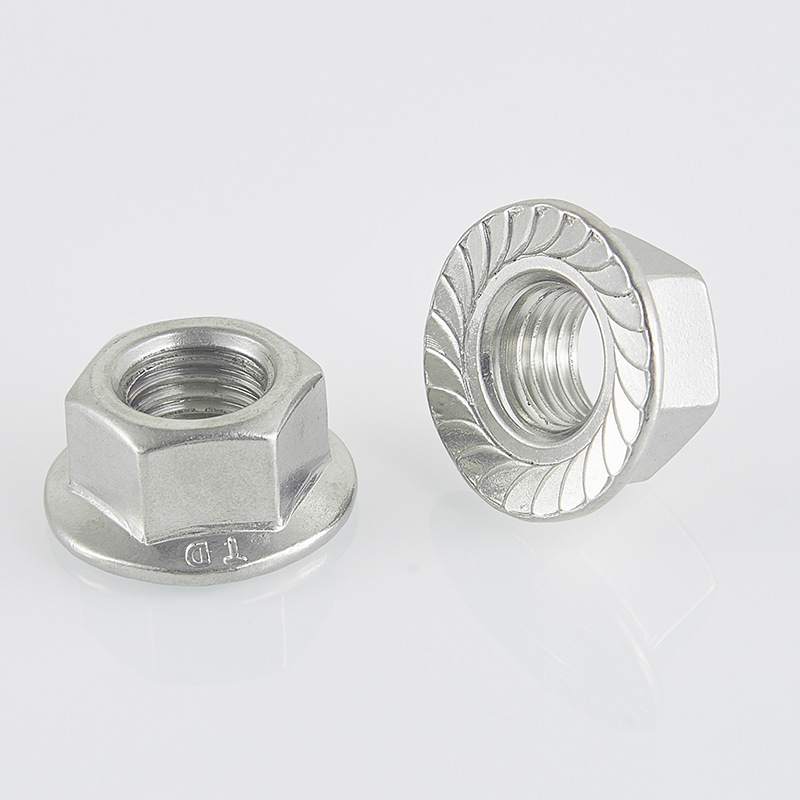

m12 fender washer
Nov . 30, 2024 04:01 Back to list
m12 fender washer
Understanding M12 Fender Washers Essential Components for Secure Fastening
In the realm of hardware and construction, the significance of small components often goes unnoticed. One such integral item is the M12 fender washer. While it may appear to be a simple disc of metal, its purpose and functionality are crucial for achieving secure connections in various applications. This article delves into the characteristics, applications, and importance of M12 fender washers.
What is an M12 Fender Washer?
The term M12 refers to the metric size of the washer, which indicates it has an inner diameter designed to fit M12 bolts or screws (approximately 12 mm in diameter). Fender washers, characterized by their large outer diameter in relation to the inner hole, are specifically designed to distribute the load of a fastener over a larger surface area. This feature prevents damage to the surface being fastened and reduces the risk of fastening failure, particularly in softer materials.
Fender washers are typically made from materials such as stainless steel, galvanized steel, or plastic. Their versatility makes them suitable for both indoor and outdoor applications. Stainless steel fender washers offer superior resistance to corrosion, making them an ideal choice for marine or harsh environmental settings.
Key Characteristics
The design of an M12 fender washer allows it to perform optimally in a variety of conditions. Some notable characteristics include
1. Load Distribution The larger outer diameter helps in distributing the load, enhancing the stability of the bolted connection and minimizing the likelihood of the washer pulling through the material. 2. Durability Depending on the material used, these washers can withstand significant mechanical stresses and exposure to varying environmental conditions.
3. Versatility M12 fender washers can be used in a wide range of applications, from automotive to construction, making them a staple in many toolkits.
4. Ease of Use The installation of fender washers is straightforward. Simply place the washer over the bolt or screw before tightening it down onto the surface, ensuring a secure connection.
Applications of M12 Fender Washers
M12 fender washers find extensive usage across various industries. Some common applications include
m12 fender washer

- Automotive Industry They are frequently used in vehicle assembly, where bolts are securing components that may be exposed to vibrations and stresses.
- Construction In building structures, especially where heavy loads are involved, fender washers provide additional support to fasteners that hold together beams, frames, and other heavy elements.
- Electronics In electronic assemblies, M12 fender washers can help secure circuit boards or other components, providing stability while preventing damage to fragile surfaces.
- Furniture Assembly Many types of furniture use fender washers to reinforce joints and connections, providing added strength and reducing the risk of failure under load.
Importance of Using Fender Washers
The inclusion of fender washers in fastening applications offers several benefits
- Enhanced Stability Distributing weight over a larger area prevents local deformation and surface damage.
- Prevention of Loosening By securing the load more effectively, these washers help maintain tight connections under vibrations or thermal expansion, which is particularly critical in automotive and machinery applications.
- Material Protection The wide surface area prevents damage to the base material, ensuring that the substrate does not crack, deform, or weaken over time.
Conclusion
In summary, M12 fender washers are small yet mighty components that play a critical role in ensuring the integrity and safety of various applications across multiple industries. Whether in automotive assembly, construction, or electronics, these washers provide significant advantages that enhance the performance and longevity of fastened connections. For anyone involved in DIY projects or professional construction, understanding the importance of components like the M12 fender washer is fundamental for achieving reliable results. As simple as they may seem, the impact of using the right fastening hardware can be far-reaching, ensuring both safety and durability in every application.
Latest news
-
High-Strength Hot-Dip Galvanized Bolts-Hebei Longze|Corrosion Resistance&High Strength
NewsJul.30,2025
-
Hot Dip Galvanized Bolts-Hebei Longze|Corrosion Resistance&High Strength
NewsJul.30,2025
-
Hot Dip Galvanized Bolts - Hebei Longze | Corrosion Resistance, High Strength
NewsJul.30,2025
-
High-Strength Hot Dip Galvanized Bolts-Hebei Longze|Corrosion Resistance, Grade 8.8
NewsJul.30,2025
-
Hot Dip Galvanized Bolts-Hebei Longze|Corrosion Resistance,High Strength
NewsJul.29,2025
-
High-Strength Hot Dip Galvanized Bolts - Hebei Longze Metal Products Manufacturing Co., Ltd.|corrosion resistance&high strength
NewsJul.29,2025

